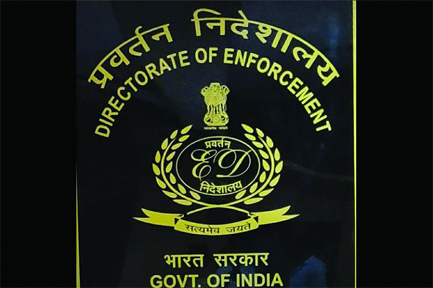
New Delhi (TIP)- The government has amended rules under the anti-money law, making it mandatory for banks and financial institutions to record financial transactions of politically exposed persons (PEP).
Also, financial institutions or reporting agencies will be required to collect information about the financial transactions of non-profit organisations or NGOs under the provisions of the Prevention of Money Laundering Act (PMLA). Under the modified PML Rules, the Finance Ministry defined PEPs as “individuals who have been entrusted with prominent public functions by a foreign country, including the heads of States or Governments, senior politicians, senior government or judicial or military officers, senior executives of state-owned corporations and important political party officials”.
The financial institutions will also have to register details of their NGO clients on the Darpan portal of the Niti Aayog and maintain the record for five years after the business relationship between a client and a reporting entity has ended or the account has been closed, whichever is later, the amendment said.
Following this amendment, banks and financial institutions will now have to not only maintain records of financial transactions of PEPs and NGOs but also share them with the Enforcement Directorate, as and when sought. The amendments to PMLA rules also include tightening of the definition of beneficial owners under the anti-money laundering law and mandating reporting entities like banks and crypto platforms to collect information from their clients.
As per the amendments, any individual or group holding 10 per cent ownership in the client of a ‘reporting entity’ will now be considered a beneficial owner against the ownership threshold of 25 per cent applicable earlier.
Under the anti-money laundering law, ‘reporting entities’ are banks and financial institutions, firms engaged in real estate and jewellery sectors. They also include intermediaries in casinos and crypto or virtual digital assets.
So far, these entities were required to maintain KYC details or records of documents evidencing the identity of their clients as well as account files and business correspondence relating to clients. They are required to maintain a record of all transactions, including the record of all cash transactions of more than Rs 10 lakh.
They will now have to also collect the details of the registered office address and principal place of business of their clients. The powers of the ED stand vastly expanded by this move.
In July 2022, in what the BJP had held as a “landmark judgment“, the Supreme Court bench headed by Justice A.M. Khanwilkar had already upheld the ED’s sweeping powers relating to arrest and attachment of property, and its ability to search and seize under the PMLA.
The apex court also said the supply of Enforcement Case Information Report (ECIR) in every case to the person concerned is not mandatory. The ECIR is the ED’s equivalent of a police FIR.
Several opposition parties – including the Congress, Trinamool Congress and Aam Aadmi Party – expressed “deep apprehension on the long-term implications” of the judgment.
A bench headed by Chief Justice N.V. Ramana of the apex court, a month later, said that the same court’s judgement on the ED’s powers to take possession of a property before trial in exceptional cases leaves scope for arbitrary application and needed further explanation.
The Supreme Court is also hearing the case against the tenure extension granted to ED director Sanjay Kumar Mishra in 2021. The Union government has called the petitions against the extensions “politically motivated”.
Mishra was first appointed the ED director for a period of two years by an order on November 19, 2018. He was set to demit office in November, 2020, and in May that year, he had reached the retirement age of 60. But, through an office order on November 13, 2020, the appointment letter was modified retrospectively by the Union government and Mishra’s term of two years was replaced by three years.





Be the first to comment